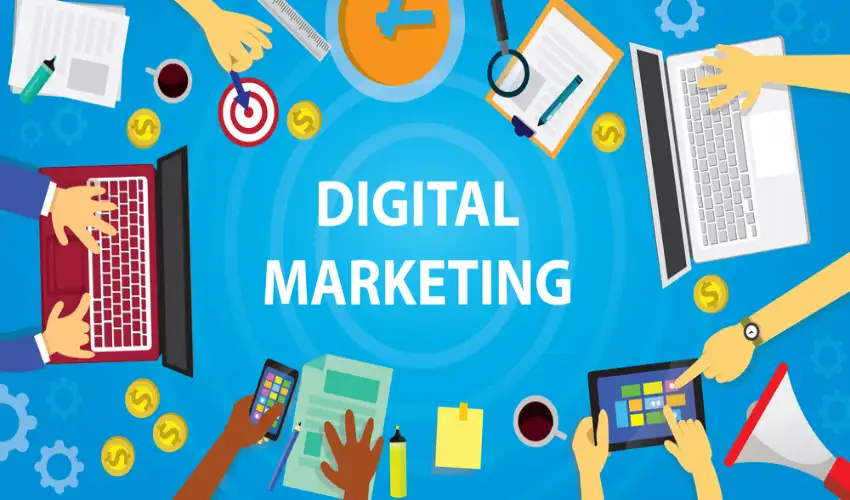In today’s highly competitive digital landscape, a digital agency must stand out not only through the quality of its services but also through effective marketing strategies. Whether you’re a startup agency or an established firm, understanding and implementing proven marketing tactics is essential to attract clients, build trust, and grow your business sustainably.
This article explores practical seo company marketing strategies that work, helping you to increase visibility, generate leads, and boost your agency’s reputation.
1. Define Your Niche and Target Audience
One of the most important marketing strategies for digital agencies is to clearly define your niche. Trying to serve every industry or business type can dilute your messaging and make it harder to compete. Instead, focus on a specific industry vertical, service type, or client size.
For example, you might specialize in marketing for tech startups, e-commerce brands, or healthcare providers. Defining your niche allows you to tailor your messaging, case studies, and marketing campaigns to resonate strongly with a specific audience, making your agency appear as an expert in that field.
2. Build a Strong Online Presence
Your agency’s website is often the first point of contact with potential clients. Ensure your website is professional, user-friendly, and optimized for search engines (SEO). Showcase your portfolio, client testimonials, and case studies that highlight your successes.
In addition to a website, maintain an active presence on social media platforms where your target audience hangs out. LinkedIn, Twitter, and Instagram are particularly effective for B2B digital marketing. Sharing valuable content regularly helps build authority and trust.
3. Content Marketing That Educates and Engages
Content marketing is a powerful tool to attract prospects organically. Create high-quality blog posts, whitepapers, ebooks, and videos that address your audience’s pain points and offer solutions. For instance, blog topics like “How to Improve PPC Campaigns” or “SEO Best Practices for Small Businesses” demonstrate your expertise and draw traffic to your site.
Use content marketing to nurture leads through email campaigns, webinars, or newsletters. Consistent, helpful content keeps your agency top of mind and builds long-term relationships.
4. Leverage Social Proof and Case Studies
Prospective clients want to see evidence of your capabilities before hiring your agency. Use client testimonials, reviews, and detailed case studies to build credibility. Highlight specific results such as increased traffic, higher conversion rates, or revenue growth.
Create compelling case studies that tell a story — the client’s challenge, your solution, and the outcome. Share these across your website, social media, and sales presentations. Social proof is a key factor in influencing client decisions.
5. Invest in Paid Advertising Strategically
While organic marketing is essential, paid advertising can accelerate your lead generation. Platforms like Google Ads, LinkedIn Ads, and Facebook Ads allow you to target specific audiences based on demographics, interests, and behavior.
Run targeted campaigns promoting your agency’s services, webinars, or downloadable resources. Use retargeting ads to re-engage visitors who didn’t convert the first time. Ensure you track campaign performance closely to optimize budget and maximize ROI.
6. Network and Collaborate within the Industry
Building relationships within your industry can open doors to new clients and partnerships. Attend industry conferences, webinars, and local networking events to connect with potential clients and other professionals.
Collaborate with complementary businesses such as web developers, graphic designers, or PR firms. Referral partnerships can be a valuable source of new business and provide a more comprehensive service offering to clients.
7. Offer Free Consultations or Audits
Many potential clients hesitate to commit without understanding what you can do for them. Offering free consultations or digital marketing audits provides an opportunity to showcase your expertise and understand their needs.
During these consultations, demonstrate the value you can add and how your agency can solve their specific challenges. This approach builds trust and often leads to new contracts.
8. Utilize Email Marketing for Lead Nurturing
Email marketing remains one of the most effective ways to nurture leads and maintain relationships. Segment your email list based on client interests and engagement levels.
Send personalized content such as industry news, tips, or exclusive offers. Automated drip campaigns can guide prospects through the buyer’s journey, keeping your agency top of mind until they are ready to hire.
9. Focus on Client Retention and Upselling
Winning new clients is important, but retaining existing clients is equally critical for growth. Provide excellent service, clear communication, and regularly review campaign performance with your clients.
Look for opportunities to upsell additional services such as SEO, content marketing, or social media management. Happy clients are also more likely to refer your agency to others, helping expand your network organically.
10. Track, Analyze, and Adapt
Finally, successful digital agency marketing relies on continuous measurement and adaptation. Use tools like Google Analytics, CRM software, and social media insights to track your marketing efforts.
Analyze which channels and campaigns drive the best leads and conversions. Adapt your strategies based on data to improve performance over time and allocate resources effectively.
Conclusion
Digital agency marketing is about combining the right mix of strategies to build authority, attract the right clients, and grow your business. By defining your niche, producing valuable content, leveraging social proof, using paid advertising wisely, and continuously analyzing results, your agency can stand out in a crowded market.
Implementing these proven marketing strategies can help your digital agency not only survive but thrive in an ever-evolving digital world. Stay consistent, focus on your clients’ needs, and keep innovating to ensure long-term success.
